The Spiritual Exercises of St. Ignatius Loyola
Since the Second Vatican Council, the Spiritual Exercises of St. Ignatius Loyola have been the subject of extensive research leading to a renewal of the way the Spiritual Exercises are practiced.

In 2009, Georgetown University, at the invitation of President John J. DeGioia, has brought in leading experts in this renewal to put on record their understandings and personal perspectives on the history of this renewal, on the dynamics of the Exercises, and on new developments in the practice of the Exercises.
Through these videos Georgetown now offers the resulting interviews to a wider public, including those who are just becoming acquainted with the Spiritual Exercises as well as those well versed in the Exercises who are searching for greater insights.
These videos were produced for Georgetown by Frank Frost Productions.
The 2-DVD set of The Spiritual Exercises: Renewal and Dynamics can be purchased online from The Institute of Jesuit Sources.
Disc One: Renewal of the Spiritual Exercises
- Rediscovery and Renewal Part 1 (25 min)
Jesuit pioneers in the 20th-century renewal of the Spiritual Exercises relate their personal experiences in their introduction to the guided retreat. - Rediscovery and Renewal Part 2 (17 min)
The same Jesuit pioneers discuss the guided retreat movement that grew from training programs they instituted and witnessed. - Emerging Role of the Laity (27 min)
Jesuit leaders in the renewal of the Spiritual Exercises discuss the evolution of lay leadership in the practice of giving the Spiritual Exercises.
Disc Two – Dynamics of the Spiritual Exercises
- Dynamics of the Spiritual Exercises (37 min)
The essential dynamics of the Spiritual Exercises are discussed from the different perspectives of Fathers John O’Malley, George Aschenbrenner, John Padberg, and William Barry.
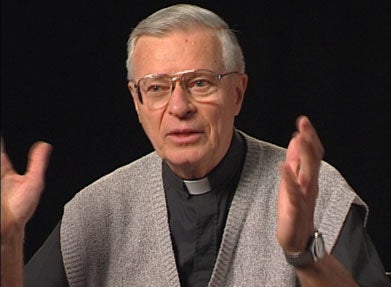
George Aschenbrenner, S.J.,
George Aschenbrenner, S.J. is well-known as the author of a seminal article on the “Consciousness Examen” which transformed the way we approach this fundamental Ignatian exercise, moving from a moralistic appraisal to a growing awareness of how God is active in one’s life and how one is responding to that divine action. He was Director of Novices in the Maryland Province during the ten years when the individually guided retreat was introduced into the early formation of Jesuits. Throughout six years as the Director of Spiritual Formation at the North American College in Rome and twelve years as the Director of the Jesuit Center for Spiritual Growth at Wernersville, Pennsylvania, and through his many writings he has touched the lives of bishops, priests, religious and lay people throughout the U.S. and abroad.
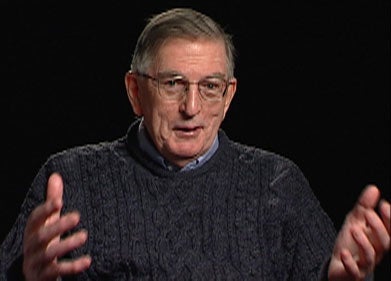
William Barry, S.J.
William Barry, S.J. is author or co-author of 18 books, any of which deal with spirituality of the Spiritual Exercises of St. Ignatius. Trained as a clinical psychologist with a doctorate from the University of Michigan, he has been especially influential in interpreting the Spiritual Exercises through the lens of contemporary psychology. He combined his background in clinical psychology with Ignatian spirituality in the training of many spiritual directors over the years. In 1971, he co-founded the Center for Religious Development in Cambridge, MA to give spiritual direction and train spiritual directors. His leadership within the Jesuit order includes stints as Rector at Boston College and Provincial Superior of the New England Province.
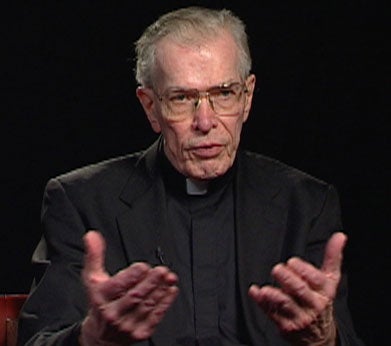
Walter Farrell, S.J.
Walter Farrell, S.J. entered the Jesuits 30 years before Vatican II and the Jesuits’ General Congregation of that period, and he has been active in Jesuit leadership and spiritual ministry in the 45 years since then. Trained in Philosophy, with a Doctorate from the Gregorian University, Rome, he became one of the leaders of the Society’s adaptation to Vatican II, and the implementation of the guidelines for religious renewal that were laid out by General Congregation 31. An integral part of this renewal was a return to the individually directed retreat. He served as Provincial Superior of the Detroit Province and then Assistant to the U.S. Provincials for Jesuit Formation during the period when the individually directed retreat was being introduced into Jesuit formation.
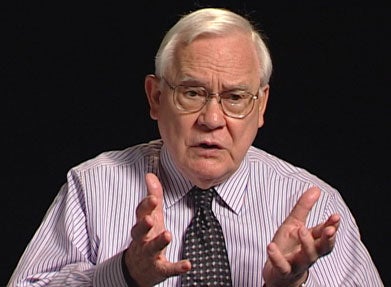
Howard Gray, S.J.
Howard Gray, S.J. was one of the first American Jesuits to make an individually directed retreat during Tertianship with Peter Paul Kennedy at St. Beuno’s in Wales. As a leader in the training of young Jesuits – as a Rector of the Novitiate, Rector and Dean at Weston School of Theology – and as Provincial Superior of the Detroit Province, Howard became a recognized authority on Ignatian spirituality. Through writing and lecturing, he’s been instrumental in fostering a personalistic approach to the Spiritual Exercises, directing retreats around the world. He continues this commitment today with emphasis on helping the faculty and boards of Jesuit universities to understand the Jesuit tradition in higher education.
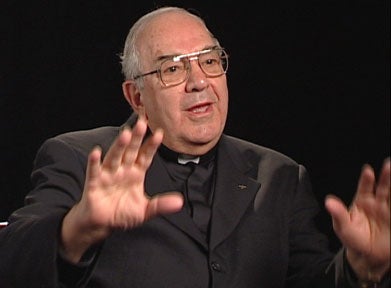
Dominic Maruca, S.J.
Dominic Maruca, S.J. has spent his career training others to understand and implement the dynamics of the Spiritual Exercises as an individualized experience. He received a doctorate in Ascetical-Mystical Theology from the Gregorian University in Rome where he wrote his thesis on the spirituality of Ignatius Loyola. From 1970 to 1977, he developed teams to train Jesuits throughout the U.S. in giving individually directed, personalized retreats. He then spent 20 years at the Gregorian University in Rome teaching Pastoral Theology and training spiritual directors. Over 40 years, he has conducted retreats and workshops for bishops, priests, religious, seminarians and lay persons in Europe, Asia, Africa, Latin America, Oceania and in more than 80 dioceses through out the U.S.
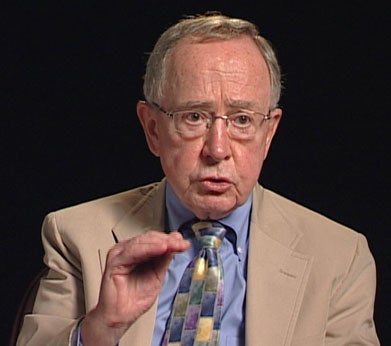
John O’Malley, S.J.
John O’Malley, S.J. received his doctorate in history from Harvard University, becoming a specialist in the religious culture of early modern Europe, especially Italy. As a noted historian he has profoundly shaped the way we understand Jesuit history and the influence of Ignatian spirituality on culture, science and the arts. He is the award-winning author of seven monographs, including The First Jesuits, one of the best known books on the founding of the Jesuits having been translated into nine languages. He has co-edited four books that deal with the Jesuits’ engagement with culture, science and the arts, and continues to lecture widely in North America and Europe, receiving many awards from academic and scholarly organizations.
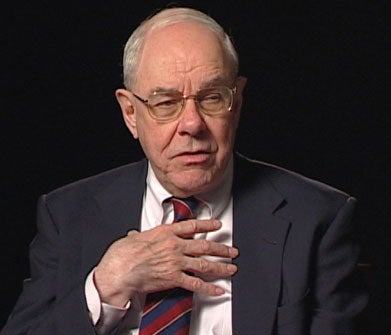
John Padberg, S.J.
John Padberg, S.J. has been Director of the Institute of Jesuit Sources since 1986, where he has made the rich resources of Ignatian and Jesuit scholarship available to a wide audience. His prior background includes doctoral studies in intellectual history and the history of ideas at Harvard University. Since then he has served as professor of history and Academic Vice President of Saint Louis University, staff member of the national Jesuit Conference, and President of the Weston Jesuit School of Theology, among other leadership positions. For sixteen years he served as Chairman of the Seminar on Jesuit Spirituality and editor of Studies in the Spirituality of Jesuits. His current research and writing centers around the history of the Society of Jesus.
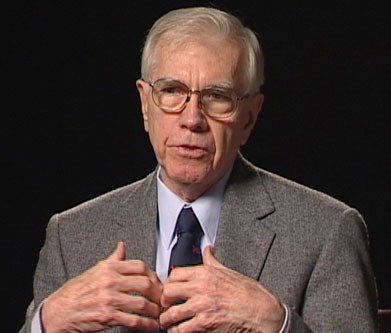
Joseph Tetlow, S.J.
Joseph Tetlow, S.J. is an author, educator, and administrator, perhaps most widely known for his handbook for giving the Spiritual Exercises. Choosing Christ in the World has been translated into several languages and has made the Spiritual Exercises in Everyday Life available to thousands of lay people over the past twenty years. His doctoral work on American Civilization at Brown University focused on the development of American Catholic spirituality. In addition to positions as president of the Jesuit School of Theology at Berkeley and executive secretary of the U.S. Jesuit Conference in Washington, D.C., he served eight years in Rome on the Jesuit General’s staff as Secretary for Ignatian Spirituality. He continues to give workshops and seminars on Ignatian spirituality to Jesuits and their collaborators.